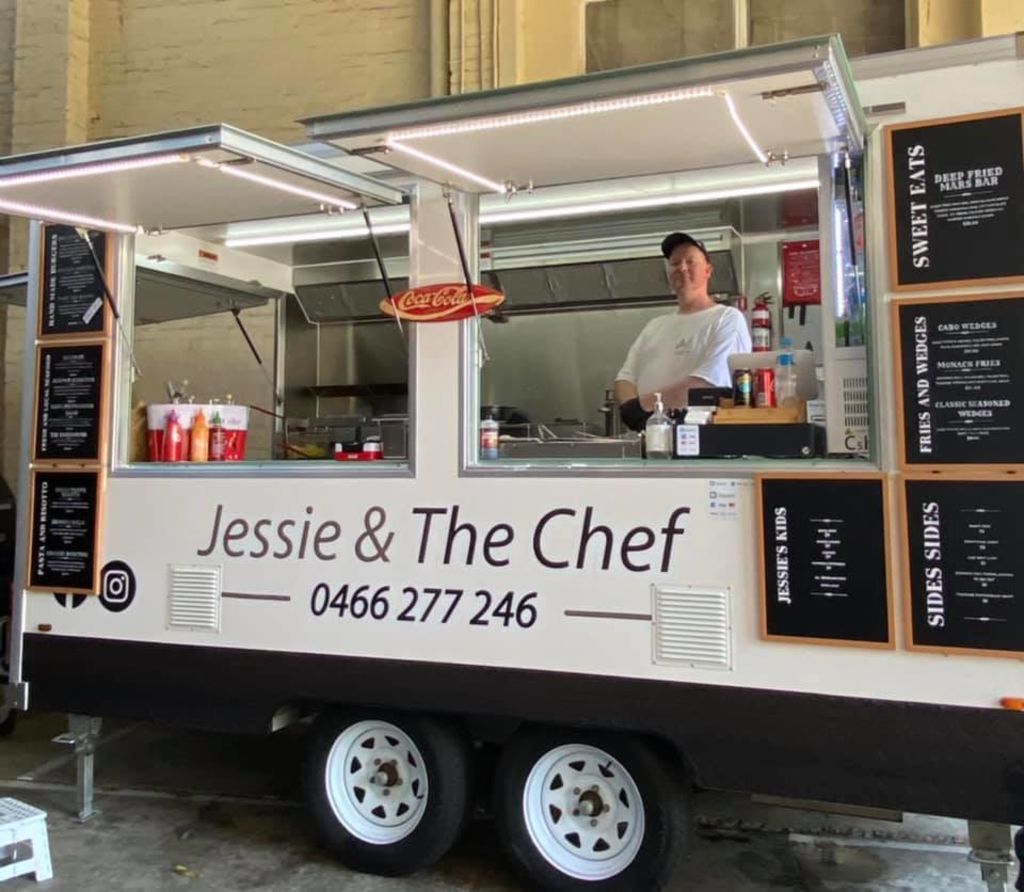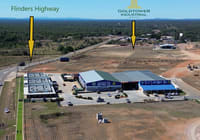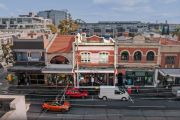
'The penny dropped': why more chefs are taking their food on the road
A passionate chef all his life, Phil Kane had always dreamed of owning a restaurant by the sea.
In the midst of COVID-19 last year, his dream took a twist when, to celebrate his 50th birthday, his family bought a food trailer.
“Everybody was fighting for survival,” he said. “And I thought, ‘I can take a trailer anywhere, I can park it at the house.'”
With wife Helen by his side, Jessie and the Chef was born in July, named after the couple’s 14-year-old daughter. And although it’s still a side hustle, the family business has been a roaring success, serving dishes ranging from fried Mars Bars to gourmet canapes.
The trio has travelled all over south-east Queensland, working at weddings, birthdays, markets and school fetes. They’re even booked to go to an upcoming cowgirl festival.
“You have no idea how cool it is,” Mr Kane said. “I love it.”
While the global pandemic closed many hospitality venues across the country, it didn’t slow the demand for food trailers, according to manufacturer Matt James.
His company, Food Trailer King, makes and delivers food trucks and trailers all over the country.
Mr James said the interest in food trucks was heightened when people realised that even in the midst of a lockdown, take-away food remained open.
“The penny dropped. It became the true recession-proof business,” he said.
Many of his recent clients have fled the hospitality industry and, he said, could effectively halve their overheads with a food truck.
” People are exiting restaurants left, right and centre,” he said. “Chefs who have been out of work are taking the opportunity to start their own businesses.”
A ready-to-go trailer can cost anywhere between $10,000 and $90,000, while food trucks typically sell at the higher end of the range.
“Someone can set up a coffee trailer and spend under $30,000. They can work four hours a day and make $1500 profit a week,” Mr James said.
But the picture isn’t as rosy for everyone in the industry, particularly in Melbourne, where a series of longer lockdowns has taken its toll.
The prosperity and sustainability of the food truck industry has been divided since the pandemic began, said Australian Mobile Food Vendors Group director Frank Rusitovski.
“Usually we look at the industry as a whole but now there is a national-Australia and there’s a Victoria-Melbourne,” he said. “The disappointing thing is, the heart and soul of food is in Melbourne.”
Mr Rusitovski said operators had been impacted differently, depending on their location and their main source of income: events or fixed-location trading.
“The majority, 60 to 70 per cent, are events based, even if they’re trading on the street as well,” he said. “They do have a great following but their key big tickets are events, and events have been shattered.
“Food trucks are based on people gathering, being outside, at an event and having fun. When that’s not permitted, it’s really hard.”
While JobKeeper was a lifeline for some operators, others weren’t entitled to the payments and were forced to sell, Mr Rusitovski said.
“Over the last 18 months, food trucks did get hit pretty hard.”
Like many other sectors, the pandemic meant food truck businesses had to adapt to survive.
Some opened up to street trading, while others headed to country towns, where council regulations for parking were often not as strict.
The Where the Truck app is also growing in popularity, connecting people and businesses to local food operators in their area.
There are no official numbers of mobile food trucks and trailers in the country, but Mr Rusitovski said it was a growing industry prior to COVID. And perhaps that will continue.
“During COVID, our office has received a surprising number of calls [from] people enquiring about buying food trucks,” he said.
Although Phil Kane still works at a pub, he plans for Jessie and the Chef to become his only job in the near future. His daughter runs their social media and marketing, and the bookings keep coming.
“The biggest thing for me is the support of the community. I have a good following and I’m very grateful.”










